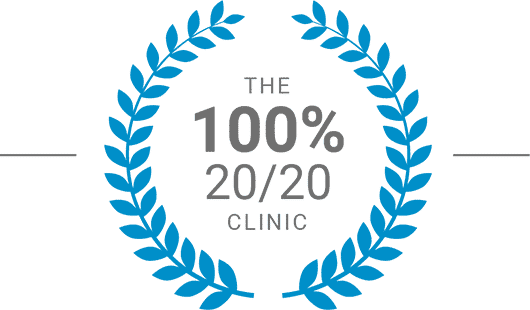Book Your Free Consultation
Mr David Allamby
MD, FRCOphth, FRCS
There are three major cataract surgery procedures:
The first two types of cataract surgery are those found in a modern setting: phacoemulsification and femtosecond laser-assisted cataract surgery (FLACS).
Phacoemulsification is by far the most common type performed in the developed world, with some minor adoption of FLACS.
There is also a third option of extracapsular cataract extraction which is valuable in some cases of mature cataracts as well as difficult procedures in which phacoemulsification is riskier or not possible.
Extracapsular cataract extraction is performed much less frequently in the developed world but is commonly carried out in developing countries.
To know which option is right for you, we’ll need to consider the kind of cataracts you have and the health of your eye.
There are different types of cataracts and depending on the kind you have, you might be more suited to one type of surgery or the other.
The most common type of cataracts in the UK are those that are age-related. They affect around one-third of the population at some point in their life and the older you are, the more likely you are to develop them.
Cataracts can sometimes develop as a result of another condition. Although less common than other types, a person might have cataracts if they have diabetes or have had problems with drug or alcohol abuse. They are also more common in short-sighted patients.
In some rare cases, cataracts can actually exist from birth or develop during childhood. We typically associate cataracts with those aged 50+, but they can be found in some children. The cause is thought to be an issue with chromosomes or infections in the womb.
Cataracts can develop because of a traumatic incident or injury to the eye. These are rare instances but accidents like electric shocks can cause cataracts.
What can be done?
There’s no way of preventing cataracts when they’re age-related or congenital so many of us will have to deal with them at one point or another.
No matter how cataracts have developed, if you have them and they’re interfering with your daily activities, then you should have them removed via surgery.
As described above, there are three different types of cataract surgery available. All involve removing the existing opaque lens and replacing it with an artificial implant.
In the EU and US, phacoemulsification is the most common procedure.
How about vision after surgery?
After a successful procedure, you’ll be able to see things in better focus within 24-48 hours and be able to look at bright lights without seeing as much glare. You’ll also see vibrant colours that were previously dull and blurry.
A modern approach to cataract surgery, phacoemulsification involves high-frequency ultrasound breaking up cataracts into small pieces.
This ultrasound is delivered through a special hand-piece that carefully separates and dissolves the lens. Once the lens has been broken, the pieces are removed from the eye by the surgeon through gentle suction.
The doctor will then insert a specially designed implant, which is called an intraocular lens (IOL), placing it where the natural lens used to be.
The surgeon then closes incisions that were made at the beginning of the procedure using a tiny amount of saline to swell the surrounding cornea and seal the opening.
Because they’re so small, there’s no need for any stitches and the whole thing only takes around 10-15 minutes.
Eye drops and a protective shield are given to help the recovery process.
You may be offered femtosecond laser-assisted cataract surgery (FLACS).
A laser is used to replace certain manual steps in the procedure including initial incisions, opening the lens capsule and dissecting the lens.
The laser option will be more expensive. Some providers claim FLACS as superior and will recommend the additional cost for its use.
There is evidence that FLACS can be better for advanced, mature cataracts, resulting in lower phacoemulsification energy used.
However, it is important to be aware that studies have not yet consistently shown that laser-assisted cataract surgery results in fewer complications, faster recovery or better visual outcomes than traditional cataract surgery.
With any cataract surgery, your outcome depends in large part on the skill and experience of your eye surgeon.
FLACS is a technique that’s still evolving, with its full potential yet to be achieved. It may become the standard in the future, but as of today, several studies showed fairly equivalent outcomes.
If the ultrasound is unable or unlikely to break down the cataracts, your surgeon might recommend extracapsular surgery.
A small incision is made by the surgeon towards the outer edges of the cornea. The surgeon then carefully opens the front of the capsule that holds the lens in place. Because the cataracts are more advanced, they can usually be removed in one piece, but suction can be used to remove any smaller pieces.
In rare cases, intracapsular cataract extraction (ICCE) may be needed. This technique is a variation of extracapsular but with a larger incision. It’s normally required if a person’s cataracts were caused by trauma.
During pre-op consultations, your surgeon should be able to identify which type of cataract surgery is right for you and help you to choose the best course of action. The most common types of cataracts are age-related and the most common type of surgery is phacoemulsification.
However, just because most cases are like this, doesn’t mean yours will be. The right treatment for one person might not be the right course of action for you. A good surgeon will explain all of the options open to you and help you to take the right course of action.
If cataracts are starting to impact your quality of life, then it’s time to have them removed.
Whichever type of surgery you have, the process is quick, effective and safe.
Even though cataract surgeries are common, you should still look for an experienced surgeon that will make the process stress-free.
Focus Clinic is the number-one-rated eye clinic in the UK and provides the best possible results for those that visit.
We have a zero percent infection rate for laser eye surgery thanks to our state-of-the-art facilities.
We provide a comprehensive aftercare package to make sure you’re enjoying life after the surgery without worrying about cataracts or complications.
For more information about cataracts and surgeries to remove them, read our guide. It’s packed with everything you need to know about cataracts, including possible treatments and the surgery itself.
Book a FREE* Consultation
To get a better idea of how we can help you, and also the different types of services we offer, book a consultation now.

100% 20/20 vision
Focus Clinic has a remarkable 100% success rate for 20/20 vision. We know of no other clinic that has matched these results. There is a big difference between, for example, 98% and 100% success, especially if you are in the 2%.

10 year guarantee
Your 10 Year Guarantee means you can return at any time if you have additional questions on the quality of your vision. If you have distance vision correction for short-sight then any repeat laser eye treatments to correct a return of myopia in the first 10 years are included free of charge.*

Most trusted eye treatment clinic
We have the highest trust rating of any ‘eye treatment’ rated clinic, according to independent review site TrustPilot. With an outstanding 9.9 out of 10, when it comes to your eyes, choose the clinic that actual patients trust the most.
*Terms and conditions apply, excludes any age-related changes and conditions unrelated to the primary treatment